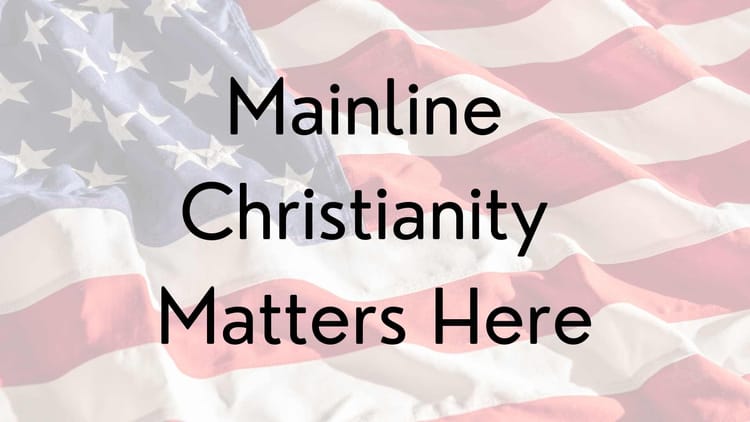Structuring for Discipleship

The second paper of the Task Force to Reimagine the Episcopal Church, on reforms to governance and administration, was released last week. In general, I was pleasantly surprised by the clarity of thought offered by this paper. As a newcomer to the Episcopal Church who has never been a delegate to General Convention, at first I didn’t think I had much to add. And then I came to this line, in the section “Reforms to Commissions, Committees, Agencies, and Boards:”
Eliminate all Standing Commissions except (a) Constitution and Canons, (b) Structure of the Church and (c) the Standing Commission on Liturgy and Music. Retain the Joint Standing Committees on Nominations and Program, Budget & Finance.
I understand eliminating Standing Commissions on general principle. I understand making exceptions for Nominations, Program, Budget, Finance, Constitution & Canons and Structure of the church. These are functions of the church’s governance system for which people must be duly authorized and clearly accountable.
But why does TREC retain the Standing Commission on Liturgy and Music while doing away with, among others, the Standing Commission on Lifelong Christian Formation?
There is a cynic who lives inside me. That cynic says, “We keep the Standing Commission on Liturgy and Music because there will always be Episcopalians. They just appear, ex nihilo. Episcopalians will always want to attend to the beauty of glorifying God, so we must have a Standing Commission for that work. The Standing Commission on Lifelong Christian Formation, however, is not needed. Making disciples is institutionally optional; someone else will take care of it if we don’t.”
I don’t know enough about the history of Christian formation in the Episcopal Church. I know that we used to have a national staffperson for children’s ministry, and we don’t anymore. I know that General Convention does not appropriate resources for churchwide curriculum development; the church leaves that to third parties like the Church Pension Fund (Church Publishing, Inc., is their affiliate). I believe that the Episcopal Youth Event, while a fabulous experience for those who attend, is structured to maximize the resources allocated to it. However, it is not resourced or structured for maximum participation by youth. (I’ll post about that another time.)
I came to the Episcopal Church from the Unitarian Universalist Association. I’m very, VERY glad to be here, but I can’t help noticing some important differences:
- The UUs provide geographically-linked standards of compensation for religious educators. The Episcopal Church, on the other hand, has no official standards for compensation of Christian educators.
- The UUs have agreed upon a standardized credentialing program for lay religious educators. The Episcopal Church has no single standard for training and credentialing Christian educators.
- Intentional development of a Unitarian Universalist identity is integrated into UU curricula for children and youth, many of which are published online for free. Most of our Episcopal curricula are solidly behind a paywall of one kind or another, and rarely incorporate intentionality about forming an Episcopalian identity.
I can’t help thinking that our retention rates might be higher if we took some structural (though not theological!) lessons from the Unitarian Univeralists.
The outcomes of our present situation are all too clear: the Pew Forum’s Religious Landscape Survey made it evident that 20% of those raised in the Episcopal Church leave to become totally unaffiliated, the largest percentage of any Protestant body (we tied with the Congregationalists). This graphic comes from chapter 2 of their 2007 report:

And why would we retain our youth? In their early years, we have not helped them develop a relationship with God, which is usually foundational for future religious involvement. The following graphic is from p. 24 of the National Survey of Youth and Religion’s “Portraits of Protestant Teens” report, available via download.

The Episcopal Church is listed as “ECUSA.” Notice that nationally, our 13-17 year olds are just barely ahead of totally unaffiliated teenagers in terms of a sense of relationship with the divine.
When asked, “How distant or close do you feel to God most of the time? Would you say extremely distant, very distant, somewhat distant, somewhat close, very close, or extremely close?” our teens chose the distant/somewhat close options.
As a parent and a Christian educator in the Episcopal Church, I feel sad when I see this data. As a reader of the TREC report, I have to ask: is eliminating the Standing Commission on Lifelong Christian Formation going to make this already bad situation worse?
Our Lord Jesus Christ said to the first disciples in the closing words of the Gospel of Matthew (emphasis added):
Go therefore and make disciples of all nations, baptizing them in the name of the Father and of the Son and of the Holy Spirit, and teaching them to obey everything that I have commanded you.
Christian formation is not a special-interest group or the work of a small minority; it is a faithful response to the Great Commission of Jesus Christ. Christian formation is a core function of the church – especially a church which seeks to be a missionary society for the 21st century. But judging from the data on retention of our children and youth, it is not one of our strengths.
Perhaps a continuing Standing Commission is not the best way to authorize and hold accountable continuing work to change this situation. But surely a method of administration which only provides for a lurching non-strategy of empowering three-year task forces will not improve our outcomes. And if we are to keep faith with the words of Christ, we are called to improve.
The TREC report states, “it has been clear for some time to many in the church that we need to undertake large-scale, adaptive changes in order to most faithfully and effectively proclaim the gospel of Christ and participate in God’s mission in our contemporary cultural context.” With this, I completely agree. Why not, then, structure for discipleship?
What might occur if we restructured in such a way that we could allocate core institutional resources for the following:
- Development of geographically-linked compensation standards for directors of Christian education
- Development of a national certification program for Episcopal Christian educators, taught by all seminaries and available online
- Development of a set of common standards for core knowledge at every age (never again would an educated Episcopalian say we were founded by Henry VIII!)
- Development of family-friendly online resources providing resources for living the liturgical year at home, empowering parents to grow as disciples and pass on the Christian faith to their children
- Open-registration, annual provincial high school youth events
- Contemporary, comprehensive, online, free curricula for children and youth (with interactive multimedia components, unlike Lesson Plans that Work and the Episcopal Children’s Curriculum)
- Greater intentionality about forming a specifically Episcopal identity among our children and youth. The Lutheran Church (Missouri Synod) has Higher Things and the Unitarian Universalists have both curricula and books. If both ends of the theological spectrum do this, surely we can also.
I know that there are probably a wide diversity of opinions on whether these are the correct tactical priorities. And of course, there are financial questions to ask about all of this as well. I’m looking forward to hearing your thoughts in the comments. These details matter. But the big questions, inspired by the proposed deletion of the Standing Commission for Lifelong Christian Formation, are these:
What might change if discipleship of children and youth were our highest priority?
Can we even imagine that church?





Member discussion